#gonzalo chacón
Explore tagged Tumblr posts
Photo


Ramon Madaula as Don Gonzalo Chacón in Isabel.
I’m only three episodes into this series (and a decade late) and I love him, I love him, I love him, Your Honor.
#drumming on pots: found myself a new times' man#I'm not even bothering with the tags tho#isabel tve#isabella of castile#content that caters to myself#i guess#spanish tv#15th century
26 notes
·
View notes
Text
Ambos equipos no pudieron pasar del empate en el Olímpico de la UCV JESÚS DAVID CASTELLANO Este domingo se disputó el Súper Clásico del Futbol Venezolano entre Caracas FC y Deportivo Táchira, que finalizó con un empate 2-2 en el Estadio Olímpico de la UCV por la jornada 20 de la Liga FUTVE. • PARTIDAZO Y VAIVENES EN EL CLÁSICO#VENEZUELAESFUTVE PIC.TWITTER.COM/UBALARAC4F — Liga FUTVE (@LigaFUTVE) July 23, 2023 Fue un partido emocionante el que se vivió en la capital, con ambos equipos generando ocasiones y brindando un lindo espectáculo al público asistente al coso del 12 veces campeón de Venezuela. Los dirigidos por Leonardo González abrieron el marcador a los 20′ minutos de la primera parte, por medio de Ender Echenique, pero la visita igualó las acciones al 43′ con gol del argentino Gonzalo Ritacco. Caracas bajó el nivel en el inicio del segundo parcial, lo que propició que el cuadro andino se acercará al arco defendido por Alaín Baroja. Una bonita jugada colectiva, permitió que Esli García (viniendo desde el banco) maniobrara en tres cuartos de cancha rival y cediera el balón a Yérson Ronaldo Chacón que definió al palo derecho del arquero contrario y convirtió el segundo tanto de los pupilos de Eduardo Saragó. Posteriormente, los de casa devolvieron la paridad al electrónico a través de Daniel Rivillo, que la mandó al arco al minuto 76′ del compromiso, y así se mantuvo hasta el pitazo final de otro partido vibrante del fútbol nacional. No obstante, esta igualdad hace que Caracas sume 30 puntos y siga en el sexto lugar. Mientras tanto, si bien Deportivo Táchira es incapaz de mantener el ritmo de Academia Puerto Cabello, queda a dos puntos; sumando un total de 39 en 19 desafíos disputados. Para recibir en tu celular esta y otras informaciones, únete a nuestras redes sociales, síguenos en Instagram, Twitter y Facebook como @DiarioElPepazo El Pepazo/Líder
0 notes
Photo
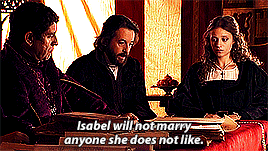
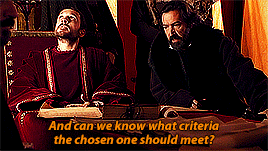

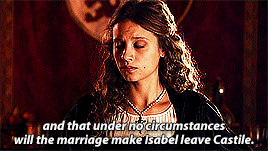



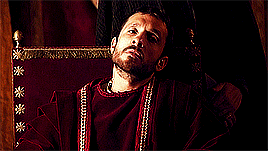
BONUS

for @eyes-painted-with-kohl
#perioddramaedit#isabel tve#1x06#2x01#isabella i of castile#ferdinand ii of aragon#juan pacheco#gonzalo chacón#enrique iv of castile#alfonso carrillo#michelle jenner#rodolfo sancho#ginés garcía millán#ramón madaula#pablo derqui#pedro casablanc
79 notes
·
View notes
Text
Lost Stars in the Night
The following characters belong to:
Isabella I of Castile, Ferdinand II of Aragon, and Juan Trastámara: @weirdbutdecentart
Isabella Trastámara: @lexartsstuff
Marion Trastámara and Elizabeth 'Liz' Seymour: @vanessaseymour
Juana 'la loca' de Castile: @ellielovesdrawing
Maria Trastámara, Maria of Jülich-Berg, and Sibylle of Cleves: Yours truly
.
Characters (Description and characters change with each chapter):
Isabel Trastámara - Age thirty eight years old, widow of Fernando Trastámara and has six children. She is currently the acting leader of the group. Is unsure how to react to her older half brother being the leader of a survivor’s society.
Isabella Trastámara - Age eighteen years old. Is the oldest child of Isabel. Her current priority is the safety of her siblings and mother. Is very wary of her uncle and prefers to distract herself by flirting with Liz.
Johann La Marck - Age twenty one years old. Readily does as he is told as long as it’s not to the detriment of his family. He is now a proud father of two daughters.
Jocasta ‘Joyce’ Howard - Age twenty nine years old and currently a couple months along in her pregnancy. Is wary of the people in the camp. Especially it’s leader.
Gonzalo Fernández - Age thirty six years old, widow of Luisa Manrique-Fernández and had two children. He is currently the captain of his border patrol unit in Campamento Zaragoza and is very happy to have Isabel and her children in the camp.
Enrique Castro - Age sixty four years old and married to Joana Castro. He is Isabel’s older half brother and the founder and leader of Campamento Zaragoza. No one knows of his true feelings about his half sister’s reemergence and arrival to his camp.
Joana Castro - Age fifty years old and married to Enrique Castro. She manages the agriculture and the food supply of Campamento Zaragoza. She’s unsure how to go about Isabel and her group’s arrival in the camp.
Beatriz de Bobadilla - Age forty eight years old. She is Isabel’s long time best friend and is very happy to know that she and her children are alive.
Gonzalo Chacón - Age sixty three years old. Isabel’s godfather and caretaker of her mother. He’s considered as Enrique’s advisor when it comes to making decisions for the camp.
Isabela Aviz-Castro - Age sixty one years old. She is Isabel’s mother and has dementia. Regardless, she’s really happy and relieved to see her only daughter.
(Before you proceed, be warned that the story contains graphic descriptions of violence, blood, gore, death. Please proceed with caution)
--------------------------------------------------
Chapter Six: Campamento Zaragoza
Enrique chuckles and walks over to Isabel. Pulling her in for a tight hug. “¡Mi querida hermana! You’re alive!” he said. Still laughing happily.
Isabel returned her older half brother's hug hesitantly. Given that her and Enrique's relationship had been rocky to say the least, this was unusual. The fact that their father married her mother, who was Enrique's wife's cousin and younger than him, was one of the reasons for their tumultuous relationship. Not to mention the fact that their father removed him entirely from his will and gave the, then dying, company to Isabel, who successfully revived it and turned it into the powerhouse it once was.
So him hugging her right now was both perplexing and uncomfortable.
“U-Um…it’s…refreshing to see you too, Enrique,” she said.
“Is that Isabella?” Enrique asked. Pulling away from Isabel and making his way over to her eldest daughter.
“U-Um…Hola tio,” Isabella politely greeted. Trying to maintain an arm’s length of space between them. He ignored this and pulled her into a hug anyway. “Look at you, you’ve grown into a fine young woman,” he said. Pulling away and looking at her from head to toe. Isabella squirmed uncomfortably under his gaze. Fortunately, her mother saved her by getting Enrique’s attention with a question.
“How did you survive, Enrique? And how did you manage to build a community as large as this?” Isabel asked. Isabella used this opportunity to step away from her uncle and stand next to Johann and Joyce.
“It’s simply a gift, Isabel. I knew Castile Corp. wasn’t for me but an entire community of survivors is! This is my calling, hermana! These people need me and without me, they would have been dead or Infected a long time now,” Enrique said. He turned to his half sister and smirked. Isabel always hated that smirk. Especially when he was smirking at her younger brother, Alfonso’s, funeral many years back.
“You saved our father’s legacy, Isabel. Now, it is my turn to save you. This is my domain now. I have things handled and in order for you and your group to earn your stay, you have to answer to me,” he said. Taking Isabel’s hand in his own but she promptly yanked her hand away.
“Gracias pero no gracias, Enrique but my group and I are leaving for Girona. It’s safer that way,” Isabel said.
Enrique frowns at this. Even Gonzalo looked at her in confusion. “Isabel, this is a fully functioning community, why decide to leave for the countryside?” he asked.
“This is a fully functioning community, Gonzalo but looking at your walls earlier, I’m not sure if it can handle the large herd heading this way,” Isabel said.
“Herd? What herd?” Enrique asked.
“A herd of Infected. They number in the thousands and they are slowly making their way here by using the main highway. We were driven out of our last safe house because of them,” Isabella explained.
“We’ve seen it. The herd may be slow moving but it was a scary and overwhelming sight. It’s like they’re endless,” Joyce said.
The two men looked at each other in shock then shifted their gazes to Isabel who was discussing quietly with the present members of her group about their changes in plans.
“So it’s agreed that the soonest Mari recovers we take our leave for Girona?” She asked, and the plan was approved by all three adults. They've all put their faith in her to make decisions, and she's never let them down.
“Hold on, Isabel. You tell us there’s a herd of Infected headed our way and you’re just standing there’ discussing your escape with your group instead of helping us?” Enrique asked. Or, more accurately, demanded as he yanks his half sister by the shoulder and spins her around to face him.
Isabel gives him a cold stare and wrests her shoulder free from his grasp.
“Why? I thought you said you have things handled in this community. Surely you have something in mind for the oncoming herd, hermano,” she challenged.
Enrique's hand connected against her cheek in a flash, as he slapped her hard in the face. Isabel stumbled a little but kept her footing. When she looked up, he was glaring at her with such hatred that she felt he could murder her right then.
“¡Mamá!” Isabella exclaimed when her mother was attacked and Gonzalo yanked Enrique away from Isabel. Scolding him for attacking her.
“Did I strike a nerve, Enrique?” Isabel continues to challenge her older half brother. Ignoring the stinging on her cheek.
This was basically their relationship dynamic.
She provokes him and he violently lashes out. Oh how their father hated this dynamic of theirs but it's his fault anyways. He bred and raised a cunning asshole then bred and raised a hard headed wise woman.
Such is the family of the Castros.
“¡Maldita perra! I offer you shelter and safety and this is how you treat me!?” Enrique shouts angrily. Swinging at her again, but this time Gonzalo and Isabel were ready. Gonzalo pulled him back, and Isabel simply stepped back to avoid his lashing fists.
"Enrique! Calm down and stop shouting before anyone outside can hear you!" Gonzalo warns him. Still restraining him.
Isabel said nothing and just looked at her older half brother with an unreadable expression. Then all of a sudden, she said, "Lo siento, hermano. I didn't mean to provoke you. I'm just stressed from all the events that have happened recently."
When Isabel apologized to Enrique, he stopped flailing and cursing. It surprised him because she had never apologized to him on her own volition. As a result, this was a strange situation. When he had calmed down, Gonzalo let go of his grip on him, but he remained close by in case the half siblings got into another fight.
Between these two, there's always a conflict. You never know when it will happen.
"Uh...you're forgiven...I guess," Enrique hesitantly said.
"Look, just let us stay here until our resident nurse has recovered and we'll be out of your hair. You won't have to worry about feeding extra mouths after," Isabel said.
"Isabel--" Gonzalo wanted to protest but Enrique cut him off.
"I'll do you one better, Isabel. I'll let you stay here for as long as you will help me and my people prepare for the oncoming herd," he offers. Isabel frowns at this.
"The only advice I can give you about the herd is to move from the city. I have a theory that the herd will stay in one area until every living being in that area is Infected or dead. It's like they have a hive mind," she said.
"Moving is simply not an option for my people and I. Especially when we have everything we need here. What we need are stronger fortifications and I know you have extensive knowledge in constructing large walls," Enrique said.
He's right for once, Isabel had to admit. Moving a huge group of people isn't an option here, especially since they've established a comfortable camp. Fortifications may work for a while, but with thousands of Infected pounding on them, they are likely to fall and everyone will most likely die. She must, however, concentrate solely on her group. Her and her group may suffer as a result of assisting a large community.
"Chacón and your mother are here, Isabel. And you're willing to just leave them here to die?" Enrique guilted Isabel.
Isabel looked at him in shock. Her mother and godfather are still alive and they're here?
"Y-You're lying…," she said. It's hard to believe that her dementia ridden mother and godfather were still alive. She came to terms with those losses months ago.
"I am not. Gonzalo, go and fetch them. Tell Chacón that Isabel and her children are here," her older half brother said. Gonzalo nodded and went to go do as he was told.
That was all the confirmation Isabel needed.
"Alright. I'll help. I'll help as best as I can," she said.
Enrique smirked triumphantly and clapped a few times.
"¡Muy bien! I'll have you and your group screened then prepare accommodations for your stay. Again, welcome to Campamento Zaragoza. I look forward to your contributions." With that, he turned and left.
Isabel breathes out a sigh of relief. This wasn't anything she had planned, and she despised doing things on the spur of the moment.
Take, for example, the entire apocalypse.
After her uncle had left the room, Isabella approached her mother. "Mamá, are you sure? He could be lying about abuelo Chacón and Avó being here," she asked.
"Your padrino went to go get them and I trust him to never lie to me about something as serious as your abuelo Chacón and Avó still alive," Isabel said.
"What the hell was that about? Is that bloke really your brother?" Joyce asked as she and Johann walked over to the mother and daughter.
"Unfortunately. He's hated me and my family since our father married my mother and had me and my younger brother, Alfonso," Isabel explained.
"He looks really old though. Like way older than you," Joyce commented.
"He is. He's around twenty some years older than I am. He's actually older than my mother."
"Bloody hell."
"You can say that again."
"Also was machen wir jetzt?" Johann asked.
"What?" Isabel asked. Turning to the young man.
"He's asking what we should do now?" Isabella translated. Johann nodded in thanks.
"Well looks like we're staying here for an undisclosed amount of time. Hopefully before the herd shows up. I'll handle Enrique and you all should just try to help around as much as you can while keeping your head down. As soon as Enrique is satisfied with my help then we can leave," her mother explained. They've essentially altered plans multiple times in a single day, and there may be more changes in the following days, but Isabel will be ready to adjust and prioritize her family and group.
"What can we do to help around here?" Joyce asked.
"Maybe you can help in the hospital as a midwife or nurse. Johann, you can maybe help with agriculture or construction. Isabella can stick with her godfather as his secretary or maybe as a temporary member of his team," Isabel said.
"Yes!" Isabella cheered.
"What made you so happy about that?" Joyce asked. Raising a curious eyebrow.
"That beautiful brunette is in my godfather's team. I have a chance to make her swoon for me. Maybe serenading her with a guitar and a song might work," the younger Isabel said. An excited smirk on her face.
"Ay dios mio…" her mother sighs. Pinching the bridge of her nose.
"Babes, Your gay is showing," Joyce pointed out.
"Hey you can't blame me. I haven't seen a pretty girl around my age in months," Isabella retorts.
"I swear you flirt like your padre. But don't get too attached, mija. We're not staying here permanently," Isabel reminded.
"I know. Do you think asking padrino to put in a good word for me would be too much?"
The old shower room's doors opened, and a group of people entered. Isabel recognized one of them immediately. A woman with a small, plump physique, braided blonde hair, and a tiny buck toothed smile on her lips.
"Mamá...isn't that…?" Isabella asked. Recognizing the person as well.
"...Beatriz…?" Isabel said. The woman who the name belonged to looked up from her clipboard and her eyes widened in shock when she saw Isabel.
“Isabel…? Isabel!” Beatriz exclaimed and ran up to her dearest friend. Crying tears of happiness and relief when she saw her alive and well.
“Beatriz!” Isabel cried as she caught her best friend in her arms. The two women cried as they hugged each other tightly.
Beatriz was another one of Isabel's childhood friends. She regarded this woman as a great friend and looked up to her as an older sister. Beatriz stayed by her side through all of her highs and lows. At her and Fernando's wedding, she was her maid of honor. She is also the godmother of her children. She is, above all, her confidante and platonic soulmate.
This is a woman she can completely entrust her life to.
"¡Dios mio! You're alive! And oh! Isabella! Mija, thank God you're alive and well!" Beatriz said. After letting go of Isabel, she hugs her goddaughter. Isabella returned her godmother's hug with joy. Relieved and happy to see another familiar face.
She couldn't help but cry when she saw close friends of her family alive and well.
"Beatriz, this is such a blessing to see you again," Isabel said.
"I thought I would never see you again! I'm so glad you all survived!" Beatriz said. Taking Isabel’s hands in her own.
"Well...not all of us," Isabella said quite somberly.
It took a minute for Beatriz to realize the missing adult in their group when she noticed Isabel wearing a man's coat instead of her own. She takes Isabel and Isabella in her arms without saying anything. Offering comfort and sympathy for their loss.
Isabel finally let herself cry on her friend's shoulder after months of keeping strong. Beatriz's comfort reminded her that she didn't have time to properly mourn Fernando's death.
"He's in a better place now, Isabel. He's not in pain anymore," Beatriz said quietly.
"But I am...my children and I are still suffering...struggling to survive everyday…," Isabel sobs.
"I know, Isabel. I know. But it's going to be okay now. You're in a safe place now."
Isabel took a few moments to gather her thoughts and pull away from her friend's embrace. Beatriz handed her a handkerchief with which she wiped away the stray tears that continued to fall. They then moved on to the screening process. It was a brief encounter. Just check out for bites (Joyce had to explain hers, and the others confirmed it) and temperature readings. They were advised to wait while their accommodations were being readied for them after they were all cleared.
Beatriz stayed with them to catch up with Isabel more.
“Avó…? Mamá! It's Avó and abuelo Chacón!” Isabella suddenly said. Running over to the people that Gonzalo was accompanying. When Isabel turned around, she saw the two people who had raised her to be the woman she was now, and her eyes widened and tears streamed down her face.
"Mamãe...padrino…," Isabella said. Walking over to them.
Isabela Aviz-Castro was seated in a wheelchair that Gonzalo Chacón was pushing. When Isabella approached them, he came to a halt. He extended his arms wide and embraced his granddaughter.
"Isabella! Querida corazon, you're alive!" he said. Hugging her tight.
"So are you and a avó! You're both alive!" she said.
Isabel had reached them. Her tears ran down her face. She walked over to her mother and knelt in front of her. She took her hand in hers. The older of the two had a blank expression on her face when she gazed at her.
"Mamãe, você se lembra de mim?" she asked.
"Quem é Você?" Her mother asked. Frowning in thought as she tried to remember who this person in front of her was.
"Mamãe, sou eu. Isabel. Sua filha," Isabel said.
"Isabel…? Minha filha…?"
She smiled and nodded. Her mother was still puzzled, but she didn't seem to mind that she didn't recognize her. What mattered was that her mother was still alive. Isabel lovingly hugged her mother and kissed her on the forehead. When Isabela returned the hug, she smiled and cried a little.
"Graças a Deus você está viva, mamãe. Graças a Deus," Isabel said.
"Isabel, it's a relief to see you alive and well," Chacón said. Isabel smiled and let go of her mother to hug her godfather. The man who stood up in her father's place since he died.
The man who she calls 'Mi querido padre'.
Isabella went to her grandmother to talk to her while her mother and grandfather had their moment.
"I'm so sorry about Fernando, Isabel," Chacón said. Isabel shook her head. "It was inevitable. He sacrificed himself to protect our children," she said.
He kissed her forehead in comfort and hugged her closer.
"Long time, no see, Isabel."
Isabel frowns and pulls away to look at who addressed her. Her mood soured when she saw her older half brother's wife walking over. Of course she'd be here as well.
"Joana," she acknowledged. Her sister in law gave her an obviously fake smile. "How are you?" she asked.
"I'm getting by just fine. You?"
"Never better now that you're here."
For a few moments, the two women locked quiet stares, with Isabel winning the battle when Joana turned away quickly. She smiled a faint triumphant grin at herself.
"So what brings you here?" Isabel asked.
"Oh right. Enrique asked me to bring you and your group to your living accomodations. Come along so we're not wasting daylight," Joana said. Turning heel and walking away without waiting for them. Isabel sighs and gestures for her group to follow.
"We'll catch up later," Chacón said to her.
"They can join us at el comedor later tonight," Gonzalo reassures.
Isabel smiled at him and nodded in thanks before going out to follow Joana with her group. Gonzalo had a small smile on his face as he watched them leave.
"After all these years, you still have feelings for Isabel?" Beatriz asked. An amused look on her face.
"I loved Luisa as a wife but Isabel is another kind of woman entirely. I just...I just can't describe how or why I still have feelings for her. There's just something about her that draws me in like a magnet," Gonzalo said.
"Be careful, Gonzalo. Isabel may not still be over Fernando's death," Chacón warns.
Gonzalo sighs and nods. "I know. I'm still grieving my own loss as well anyways," he said.
“Well maybe you two need each other to cope with your losses,” Beeatrriz said before leaving the facility. Gonzalo sighs and escorts Chacón and Isabela back to the elderly care center in the camp.
Joana was waiting for Isabel and her group by a cart drawn by two horses. "Get on the cart. The driver will take you to your place. Your belongings have already been transferred there so you just have to unpack. Also, no need to worry about your little ones. They're in the nursery near to where you'll be staying. It's an old elementary school. It's not that hard to miss," she relayed.
Isabel nods and she and her group get on the cart. "Oh and Isabel," Joana said. Preventing the driver from taking off just yet.
"Si?" Isabel asked.
"Enrique wants you in his office after you've settled in," she answered.
"Alright. I’ll just find my way there, I guess," Isabel said.
Joana nodded and walked away, allowing them to continue on their path. The horses moved forward after the driver snapped the reins. As the cart traveled past the various facilities of Campamento Zaragoza, they took a look around. Isabel had to admit that her older half brother had outdone himself in this community. Everything had its own dedicated facility. A functioning hospital, a warehouse for scavenged goods, training facilities and barracks for the community's armed protectors, a functioning school, and an entertainment venue. Stables and barns for horses and cattle are also available. Campamento Zaragoza resembles a normal city in many ways. Everyone who lives here doesn't have to worry about survival because they have all they need and more in one place.
Isabel made eye contact with Johann, Joyce and Isabella. Since the beginning of The End, all four of them have been searching for this kind of place. Maybe, just maybe, plans will change, and traveling to Girona will be a fallback plan in case things go south, which they almost certainly will. Isabel simply nodded in agreement with the others.
Maybe Campamento Zaragoza won’t be so bad after all.
--------------------------------------------------
Prev Next
#six#six the musical#sixtended verse#isabella i of castille (sixtended)#isabella trastámara (sixtended)#johann of cleves (six)#jocasta howard (six)#gonzalo fernández de córdoba(six)#enrique iv of castille (six)#beatriz de bobadila (six)#gonzalo chacón (six)#isabella of portugal (six)#joana of portugal (six)#lost stars in the night#post apocalypse au#tw major character death#tw graphic descriptions of gore#tw graphic descriptions of violence#tw zombies#my writing
12 notes
·
View notes
Text
INSTANTZZ: Mikel Andueza Organik Quartet (Festival de Jazz Zubipean 2021. Puente la Reina - Gares, Navarra) [Galería fotográfica AKA Fotoblog de jazz, impro… y algo más] Por Sera Martín
INSTANTZZ: Mikel Andueza Organik Quartet (Festival de Jazz Zubipean 2021. Puente la Reina – Gares, Navarra) [Galería fotográfica AKA Fotoblog de jazz, impro… y algo más] Por Sera Martín
Festival de Jazz Zubipean 2021 Jazz Jaialdia Fecha: sábado, 21 de agosto de 2021 Lugar: Plaza Julián Mena, Puente la Reina – Gares, Navarra. Grupo: Mikel Andueza Organik Quartet Mikel Andueza, saxo José Luis Canal, órgano Joaquín Chacón, guitarra Gonzalo del Val, batería Tomajazz: © Sera Martín, 2021

View On WordPress
#Festival de Jazz Zubipean#Festival de Jazz Zubipean 2021#Fotoblog#galería fotográfica#Gonzalo del Val#Instantzz#Joaquín Chacón#José Luis Canal#Mikel Andueza#Mikel Andueza Organik Quartet#Sera Martín
0 notes
Text
Antecedentes de la novela histórica: siglos XV y XVI
Del siglo XV se pueden entresacar tres obras importantes como posibles antecedentes del novelar histórico: el Passo honroso de Suero de Quiñones, redactado por Diego Rodríguez de Lena, escribano real que da fe de la defensa que hizo dicho caballero en el puente de San Marcos sobre el río Órbigo, cerca de León, entre el 10 de julio y el 9 de agosto de 1434; El Victorial o Crónica de don Pedro…
View On WordPress
#Crónica de don Álvaro de Luna#Crónica de don Pedro Niño#Crónica sarracina#El Victorial#Fray Antonio de Guevara#Géneros literarios#Gonzalo Chacón#Gutierre Díaz de Games#Historia de Gabriel de Espinosa#Historia de Marcilla y Segura#Historia verdadera del rey don Rodrigo#Historia y ficción#Historia y literatura#Jerónimo de Arbolanche#Miguel de Luna#Narrativa#Novela histórica#Passo honroso#Suero de Quiñones
0 notes
Text
Corrida de Toros :
Madrid :
Entrada : 18 mil espectadores.
Toros : Luis Algarra : De presencia desigual y juego variado.
📍Román : Oreja tras aviso y Vuelta al ruedo tras petición.
📍Gonzalo Caballero : Silencio y Silencio tras aviso.
📍David de Miranda : Silencio y Silencio tras aviso.
Incidencias : José Chacón saludó tras parear al cuarto.
📷 Sentimiento Taurino.
#Madrid #LuisAlgarra #Román #GonzaloCaballero #DavidDeMiranda #Toros #Tendido_5










0 notes
Text
Inicio del Partido de Concertación Nacional
ORÍGENES
Impulsado por las nuevas corrientes del conocimiento universal con una amplia tendencia a favorecer los grandes intereses sociales, surge en nuestro país la necesidad de crear un partido político que se constituyera en el impulsador y garante de las reformas sociales y económicas que necesitaba la nación en aquellos momentos. Fue así como en el año de 1961, en la Quinta Santa Teresa de los Planes de Renderos, se reúne un grupo de ciudadanos pertenecientes a las distintas clases sociales del país y acuerdan fundar una nueva identidad política denominada "PARTIDO DE CONCILIACION NACIONAL". En dicha reunión no se dio a conocer la ideología del nuevo partido ni como se integraría su Junta Directiva, pero se dejó claro que al nuevo partido político se podrían incorporar todos los ciudadanos que quisiesen
hacerlo, sin importar al partido a que pertenecieran o hubiesen pertenecido, porque el objetivo del nuevo partido era la búsqueda de una verdadera conciliación nacional.
CONSTITUCIÓN
El día 30 de septiembre de 1961, con la asistencia de más de cien personas entre profesionales, agricultores, comerciantes, empleados y obreros provenientes de las distintas zonas del país, quedó constituido el PARTIDO DE CONCILIACION NACIONAL. El acto se llevó a cabo a partir de las seis y media de la tarde, en casa del Doctor Francisco José Guerrero, situada en la Treceava Calle Poniente Número Cuarenta y Dos Cuarenta y Cuatro, Colonia Escalón de San Salvador. La Directiva provisional del Partido de Conciliación Nacional, quedó integrada así: Secretario General el Doctor José Vicente Vilanova; Secretarios Adjuntos, Doctor José Ital Iammatei y Bachiller Roberto Morán López; Secretario de Finanzas, Doctor Antonio Belismelis Álvarez, Secretario de Propaganda, Doctor Francisco José Guerrero, Secretario de Relaciones Públicas, Don Rafael Solórzano Morán. Esta Directiva elaboró los objetivos y estatutos del partido, formándose otras comisiones que colaboraron en la organización del partido.
FIRMANTES DEL ACTA DE CONSTITUCIÓN
Entre quienes firmaron el acta de Constitución del Partido de Conciliación Nacional, se encuentran las siguientes personas: Salvador Armando López, Roberto Rivas, José Alfredo Rivas, Roberto Baires, Alfredo Ramírez, José Antonio Delgado, José Valentín Jaimes, Julio C.Tejada, José Martín García, Ernesto M. Magaña, Francisco Murillo, Humberto López Melara, Julio Alberto Aguilar, René Nuila, Rafael Cabrera Martínez, Arturo Argumedo, Francisco Herrera Aquino, Enrique Cañas, Miguel Angel Molina, Joaquín Peñate, José Hernán Solórzano, Marcial Fonseca, Alfonso Membreño, Alberto Benítez, Adolfo Castillo, Enrique Sol Meza, Armando Monedero, Francisco Luis Osegueda, Ricardo Rubio Velásquez, Geo López y López, Harold Summer, Marcelo Alfaro, José Pedro Villatoro, Pablo Cruz Ventura, Ricardo Cañas, Antonio René Cortez, Jorge Mejía, Gonzalo Martínez, Víctor Cruz, José Antonio Paz, José María Salazar, Luis Alberto Alfaro, Julio César Cañas, Humberto Gonzalo López, Oscar Araujo, Pablo E. Pereira, José Antonio Argumedo, Antonio Reyes Ricas, Rafael Vides Ramos, Armando Zelada, Edwin Nuila Macay, José Antonio Soriano, Alex Hildebrand, Gabriel Montenegro, Salvador Mejía, Pedro Alfonso Segura, Jaime Chacón, Enrique Campos, Julián Paz Hidalgo, José Antonio García, Rafael Rodríguez González, Efraín Barraza, Raúl Daniel Villamariona, Carlos Armando Meza y José Antonio Ortíz.
1 note
·
View note
Text
I was tagged by @wonderbatting :D I'm sorry for the delay my internet connection is a mess 💔
Rules: Choose any three fandoms (in random order) and answer the questions, then tag 10 people you want to get to know better.
Gotham TV series (2014 - )
Isabel TV series (2011 - 2014)
The White Queen TV Mini-series (2013)
The first character you loved:
Bruce Wayne
Isabella of Castile
Elizabeth Woods
The character you never expected to love so much:
Jim Gordon
Gonzalo Chacón
Richard Plantagenet
The Character you’d slap:
Selina Kyle
Fonseca
George Plantagenet
Three favourite characters in order of preference:
Jim Gordon, Bruce Wayne, Alfred Pennyworth
Isabella of Castile, Ferdinand of Aragon, Catherine of Aragon
Richard Plantagenet, Jacquetta Woods, Elizabeth Woods
A character you liked at first but don’t anymore:
—
—
King Edward IV
A character you did not like at first but don’t mind anymore:
Mario Falcone
Joana of Portugal
Isabel Neville
Three OTPs:
Jim and Lee (my babies ❤❤❤)
Isabella and Ferdinand
Richard and Anne
Tags: (you don't have to if you don't want)
@doontpanic , @thebatfaminsta , @mygrandmathinksimsassy , @shit-i-forgot-bout-dat, @megadragon8210, @reylolujah , @judelaw
3 notes
·
View notes
Text
El Partido Comunista y su historia en Costa Rica
¿Qué era? ¿Cuáles fueron sus estadíos? ¿Cuáles eran sus ideales? ¿Cuáles fueron sus pretensiones? ¿Cuándo se disolvió?
Antes de 1931, los anarquistas, socialistas y comunistas venían formando a los costarricenses en la búsqueda de una mayor participación en los órganos de poder. A partir de 1930, los comunistas asumieron en su quehacer los tres ejes fundamentales expuestos en el artículo escrito por Lenin en 1902, titulado “Por dónde empezar”, el cual se puede resumir en: “el carácter y el contenido principal de nuestra agitación política, nuestras tareas de organización y el plan de crear, simultáneamente y en distintas partes, una organización” (Chacón, 2018).
La fundación del Partido Comunista se ha fijado el 16 de junio de 1931, dado que ese día se dio la primera reunión del llamado Comité Ejecutivo del Partido Comunista de Costa Rica en San José, en el local de la Unión General de Trabajadores. El denominado Comité Ejecutivo fue constituido por Manuel Mora Valverde, Jaime Cerdas Mora, Alfredo Valerín Acevedo, Gonzalo Montero Berry, Carlos Marín Obando, Luis Carballo Corrales, Ricardo Coto Conde. El primer programa del Partido Comunista de Costa Rica expresa los conceptos fundamentales acerca de su concepción, de la sociedad, del papel del proletariado en ella y del sistema social que eliminará la explotación del “hombre por el hombre”, fija con precisión sus tareas políticas y señala las reivindicaciones más inmediatas, que son las que deben determinar el contenido de la labor de agitación parcial a favor de pequeñas reivindicaciones, tal y como aparecen recogidas en las hojas sueltas, en los programas electorales, en el periódico Trabajo y en los discursos de Manuel Mora y de los dirigentes comunistas en todos los frentes (Chacón, 2018).
Como resumen a sus planes tenemos que: desde 1931, en sus objetivos del programa mínimo, el Partido Comunista plantea —entre otros puntos— el establecimiento del seguro social a cargo del Estado para el desempleo, accidentes de trabajo, enfermedad, maternidad, vejez. Además, la abolición del trabajo a niños menores de 15 años y la reglamentación del trabajo. También, mismo salario para mismo trabajo, jornada de ocho horas, salario mínimo, leyes de organización sindical, viviendae igualdad política de las mujeres (Barahona, 2013).
Los estudios sobre el Partido Comunista de Costa Rica, en el período anterior a 1950, pueden dividirse en cuatro grupos: las que versan sobre intelectuales y líderes, como Manuel Mora, Carlos Luis Fallas, Rómulo Betancourt, Carlos Luis Sáenz y Carmen Lyra; las que examinan el papel jugado por la izquierda en las luchas sociales de las décadas de 1930 y 1940; las que analizan la alianza entre los comunistas, el Republicano Nacional y la Iglesia católica en 1943, y el conflicto político posterior que culminó en la guerra civil de 1948, luego de la cual el Partido Comunista fue ilegalizado; y las que tratan específicamente sobre el origen intelectual del Partido, sus primeras actividades, su discurso público y la participación femenina (Molina, 2005).

0 notes
Photo

JULIO 11 – UN DIA COMO HOY – AÑO (1561) – NACE EL POETA Y DRAMATURGO ESPAÑOL, LUIS DE GÓNGORA Y ARGOTE. – LITERATURA.
Luis de Góngora y Argote, nació en Córdoba el 11 de julio de 1561 y fallece en ibidem el 23 de mayo de 1627, fue un poeta y dramaturgo español del Siglo de Oro, máximo exponente de la corriente literaria conocida más tarde, y con simplificación perpetuada a lo largo de siglos, como culteranismo o gongorismo, cuya obra será imitada a lo largo de los siglos en Europa y América. Como si se tratara de un clásico latino, sus obras fueron objeto de exégesis ya en su misma época.
Aunque Góngora no publicó sus obras (un intento suyo en 1623 no fructificó), ellas pasaron de mano en mano en copias manuscritas que se coleccionaron y recopilaron en cancioneros, romanceros y antologías publicados con su permiso o sin él. El manuscrito más autorizado es el llamado Manuscrito Chacón (copiado por Antonio Chacón, Señor de Polvoranca, para el conde-duque de Olivares), ya que contiene aclaraciones del propio Góngora y la cronología de cada poema; pero este manuscrito, habida cuenta del alto personaje al que va destinado, prescinde de las obras satíricas y vulgares.
El mismo año de su muerte Juan López Vicuña publicó ya unas Obras en verso del Homero español que se considera también muy fiable e importante en la fijación del corpus gongorino; sus atribuciones suelen ser certeras; aun así, fue recogida por la Inquisición y después superada por la de Gonzalo de Hoces en 1633. Por otra parte, las obras de Góngora, como anteriormente las de Juan de Mena y Garcilaso de la Vega, gozaron el honor de ser ampliamente glosadas y comentadas por personajes de la talla de Díaz de Rivas, Pellicer, Salcedo Coronel, Salazar Mardones, Pedro de Valencia y otros.
Aunque en sus obras iniciales ya encontramos el típico conceptismo del barroco, Góngora, cuyo talante era el de un esteta descontentadizo («el mayor fiscal de mis obras soy yo», solía decir), quedó inconforme y decidió intentar según sus propias palabras «hacer algo no para muchos» e intensificar aún más la retórica y la imitación de la poesía latina clásica introduciendo numerosos cultismos y una sintaxis basada en el hipérbaton y en la simetría; igualmente estuvo muy atento a la sonoridad del verso, que cuidaba como un auténtico músico de la palabra; era un gran pintor de los oídos y llenaba epicúreamente sus versos de matices sensoriales de color, sonido y tacto. Es más, mediante lo que Dámaso Alonso, uno de sus principales estudiosos, llamó elusiones y alusiones, convirtió cada uno de sus poemas últimos menores y mayores en un oscuro ejercicio para mentes despiertas y eruditas, como una especie de adivinanza o emblema intelectual que causa placer en su desciframiento. Es la estética barroca que se llamó en su honor gongorismo o, con palabra que ha hecho mejor fortuna y que tuvo en su origen un valor despectivo por su analogía con el vocablo luteranismo, Culteranismo, ya que sus adversarios consideraban a los poetas culteranos unos auténticos herejes de la poesía.
La crítica desde Marcelino Menéndez Pelayo ha distinguido tradicionalmente dos épocas o dos maneras en la obra de Góngora: el «Príncipe de la Luz», que correspondería a su primera etapa como poeta, donde compone sencillos romances y letrillas alabados unánimemente hasta época Neoclásica, y el «Príncipe de las Tinieblas», en que a partir de 1610, en que compone la oda A la toma de Larache se vuelve autor de poemas oscuros e ininteligibles. Hasta época romántica esta parte de su obra fue duramente criticada e incluso censurada por el mismo neoclásico Ignacio de Luzán. Esta teoría fue rebatida por Dámaso Alonso, quien demostró que la complicación y la oscuridad ya están presentes en su primera época y que como fruto de una natural evolución llegó a los osados extremos que tanto se le han reprochado. En romances como la Fábula de Píramo y Tisbe y en algunas letrillas aparecen juegos de palabras, alusiones, conceptos y una sintaxis latinizante, si bien estas dificultades aparecen enmascaradas por la brevedad de sus versos, su musicalidad y ritmo y por el uso de formas y temas tradicionales.
Luis de Góngora compuso también tres piezas teatrales, Las firmezas de Isabela (1613), la Comedia venatoria y El doctor Carlino, esta última inacabada y refundida posteriormente por Antonio de Solís.
Existen varias ediciones modernas de la obra de Luis de Góngora; la primera fue, sin duda, la del hispanista francés Raymond Foulché Delbosc, de Obras poéticas de Góngora(1921); después siguieron las de Juan Millé Giménez y su hermana Isabel, (1943) y las ediciones y estudios de Dámaso Alonso, (edición crítica de las Soledades, 1927; La lengua poética de Góngora, 1935; tres Romances, de Antonio Carreira (Barcelona: Quaderns Crema, 1998). Revista Literatura Universal – [email protected]
0 notes
Text
Libros para la maleta
Ya en el aire, el séptimo episodio de Cierra el libro al salir. Podéis encontrar todos los capítulos en las siguientes plataformas:
Anchor: https://is.gd/2NtWpC
Ivoox: https://is.gd/N7ZRLF
Google: https://is.gd/QPSxqF
Spotify: https://is.gd/HgJODw
Apple: https://is.gd/ronrw0
Spreaker: https://is.gd/tcF9JV
En este episodio especial de Cierra el libro al salir, correspondiente al mes de julio de 2019, te ofrecemos una lista de libros recomendados por nuestros oyentes para que, si te apetece, puedas leerlos este verano. ¡Disfrútalos!
1- África:
Todo lo que sucedió con Miranda Huff - Javier Castillo
2- Carlos Frontera:
Una niña está perdida en el siglo XX - Gonzalo M. Tavares.
En tu vientre - José Luis Peixoto
3- Elena Casero:
Antes, entonces, nunca - Raúl Ariza
Homenaje póstumo y otros relatos - Lamar Herrin
El arte de llevar gabardina - Sergi Pamies
Petit París - Justo Navarro
4- Elena Mujer:
El año de los delfines - Sarah Lark
5- Eva Burillo:
El olor de los días felices - Marta Gracia Pons
6- Maria Jesús:
Yo, Julia - Santiago Posteguillo
7- Marina de la Fuente:
Fuego y sangre - George R.R. Martin
Flores para Algernon - Daniel Keyes
8- Maite García de Vicuña:
Hope - Wendy Davies
9- Neli:
La venganza esquiva - Adrián Martín Ceregido
10- Lidia:
La cocina de los judíos de Sefarad en la Edad Media - Álvaro López Asensio
11- Pablo Díaz Cobiella:
Un momento, un lugar para leer: el charco verde
12- Miguel Vidal:
Carthage - Joyce Carol Oates
El manglar - Mo Yan
Cegador - Mircea Cartarescu
El primer hombre - Albert Camus
2666 - Roberto Bolaño
13- Pilar:
Tiempo de arena - Inma Chacón
14- Reyes:
Mujeres en el andén - Belén Gonzalvo, Mª Dolores Tolosa. Ilustrado por Paloma Gómez.
15- Víctor Alex Hernández:
Todo queda en casa - Alice Munro
Enero - Ángeles Sánchez Portero
Manual de jardinería para gente sin jardín - Daniel Monedero
16- Andrés Ortiz:
Tierra de mujeres - María Sánchez
Los asquerosos - Santiago Lorenzo
Lugares fuera de sitio - Sergio del Molino
17- Sandra:
Los pilares de la tierra - Ken Follet
18- Vanesa:
Todo lo que sucedió con Miranda Huff - Javier Castillo
19- Laura:
Bienvenida al club. Cabronas sin fronteras - Megan Maxwell
20- Laura:
Memorias de una salvaje - @Srtabebi
21- Lucía:
Maytalia y los inventores - Natalia y Mayden (@expcaseros)
22- Alejandra:
Memorias de Idhún - Laura Gallego
23- Inés:
El silencio de la ciudad blanca - Eva García Sáenz de Urturi
24- Jorge:
Come comida real - Carlos Ríos
La nueva educación - César Bona
No culpes al karma de lo que te pasa por gilipollas - Laura Norton
Trilogía (inacabada) Crónica del asesino de Reyes - Patrick Rothfuss
25- Nieves:
La villa de las telas - Anne Jacobs
La hija de la española - Karina Sainz Borgo
Trilogía Joël Dicker (excepto la desaparición de Stephanie Mailer)
La casa alemana - Annette Hess
Sakura - Matilde Asensi
El mundo de ayer y Momentos estelares de la humanidad - Stephan Zweig
26- Fulgen:
La biblioteca del agua - Clara Obligado
27- Marta:
Ordesa - Manuel Vilas
28- Paco Ramos:
Tropo Mare - Javier Egea (poesía)
29- Charles:
Autobiografía - Mark Twain
30- Elmar:
Filosofía del orgasmo - Claus-Steffen Mahnkopf
Tante Wussi - Katrin Bacher, autora y Tyto Alba, ilustrador - (novela gráfica)
31- Fernando:
La ciudad y la ciudad - China Mieville
Una edad difícil - Anna Starobinets
Érase de una vez - Ana Vidal
32.- Ana:
Las hijas de Egalia - Gerd Brantenberg
Ramona - Rosario Villajos
Valientes idiotas - Javier Divisa
Puede comprar la gran mayoría de los libros de los que hablamos en Librería Hontza. Si conoces una pequeña librería a la que quieras que enlacemos, por favor, dínoslo.
La sintonía del programa es de Charles Matuschewski.
Cualquier sugerencia o crítica, incluso malintencionada, nos la podéis enviar a [email protected]
Esto es todo por esta vez. Dentro de un mes, otro episodio especial.
¡Ah!, no olvidéis cerrar el libro al salir.
0 notes
Text

Medalla merecida para Yasmine Boutoil El Rhozlane en la prueba de los 3.000 metros, una atleta que viene realizando muy buenas temporadas tanto en su club Lucentino como ahora en el Trotasierra. Venia avisando y sube al pódium en el Andaluz Sub16, tras haber formado parte de la Selección Andaluza en el Nacional de Cross por federaciones de bases. Esta atleta está llamada a conseguir nuevos retos, con paciencia y sobre todo con mucho trabajo, todo ello rodeada de su familia y los técnico del club.
En los tres mil metros masculino, nuestro representante fue Gonzalo Jurado Herrera. El atleta de Hinojosa del Duque quedó en sexta posición con un crono de 10:09.60.
Maribel Díaz Mansilla y Miguel Espinosa de los Ángeles, se imponían en la XIII Carrera Solidaria por los Niños Saharauis que se celebraba este pasado sábado en Villafranca de Córdoba. El triunfo de ambos fue absoluto, sin rivales que le inquietaran.
Fueron más los trofeos cosechados y que subieron al pódium en esta ocasión. Cristina Moreno Obrero fue 3ª en mini benjamines, Paula Moreno Obrero 1ª en alevines y Alicia Aguilera Calleja 3ª. Guillermo Cosano Manjavacas y Antonio López Cardenas fueron 1º y 3º respectivamente en Benjamines, Luna Serrano Nevado tercera en cadetes, Alejandro Ramírez Grande 2º en cadetes. David Mateos Gacto y Antonio Manuel Estrella Pineda 1º y 2º en infantiles. Marina Romero Peralbo fue 1ª juvenil y 2ª absoluta tras Maribel Díaz que fue la vencedora. Manuel Milla Ortiz 1º silla de rueda, Ándres Mª Cosano Molleja 3º veterano B y Francisco Cantarero Cuesta que fue el primero en la categoría veteranos D. Por último Alejandro Chacón Illesca fue el primer junior.

Virtudes Corpas de los Ríos fue la vencedora en esta dición de la Pink Runner Córdoba
pinkrunning19


El Club Trotasierra se abona tambien a las medallas en la pista cubierta Medalla merecida para Yasmine Boutoil El Rhozlane en la prueba de los 3.000 metros, una atleta que viene realizando muy buenas temporadas tanto en su club Lucentino como ahora en el Trotasierra. 268 more words
0 notes
Photo
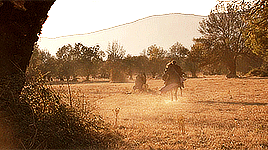
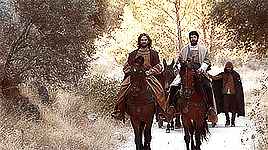
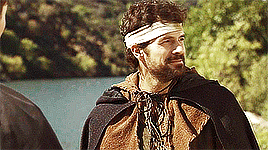
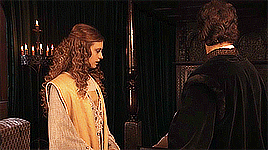
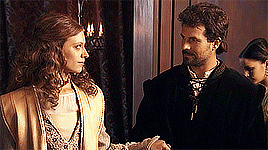

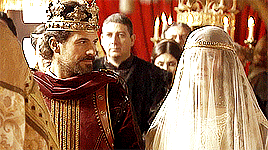
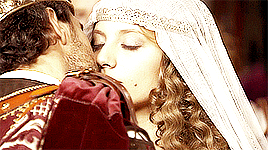

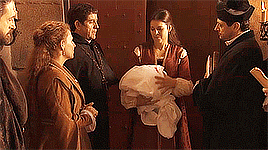
The wedding of Isabella I of Castile and Ferdinand II of Aragon (18-19 October 1469, Palacio de los Vivero, Valladolid)
John II of Aragon, as a Castilian infante and one of Castile’s great magnates, had always thought of an alliance with this realm in order to face his problems in Cataluña and with the powerful Kingdom of France. Already in 1457, John II proposed the marriage of his two children, Ferdinand and Joanna, to the half-siblings of Henry IV of Castile, Isabella, and Alfonso, although, it seems, no one took this proposition seriously at the time.
Considering the grave situation in Catalonia between 1466-67, for it was invaded by the French troops, the king of Aragon decided to negotiate with the representatives of prince Alfonso and Isabel, without breaking off ties with Henry IV, in order to assure the Castilian support. In April 1467, the leaders of Alfonso’s camp, Juan Pacheco – who was desperate to become bonded with royalty – and Alfonso Carrillo, offered him the double match: prince Alfonso would marry infanta Joanna of Aragon, and prince Ferdinand would wed Pacheco’s daughter, Beatriz. John II agreed, and although, he made it clear, he would prefer his son to marry infanta Isabella, given the desperate situation he had found himself in, he eventually gave his permission. He sent one of his diplomats, Pierres de Peralta, to Castile, with the power of attorney, to negotiate the marriage of his son with any woman of royal blood, or with any woman who did not descend from royalty. Pierres navigated skillfully between the two camps, not breaking off with anyone.
In November 1467, after the lost battle of Vilademat, John II put pressure on the ambassador of Alfonso’s party to conclude the issue of the double match. Juan Pacheco, however, seemed to be gradually distancing himself from those plans, whereas his uncle, Alfonso Carrillo, cheered John II on when it came to the Castilian marriage, agreeing with him the union with infanta Isabella, instead of Pacheco’s daughter, would be the best option. However, in June 1468, John II continued maintaining political relations with Juan Pacheco through his ambassador, Pierres. Prince Alfonso died on July 5, 1468. John II broke off the negotiations for his son’s marriage to Beatriz Pacheco. Twelve days later, on the 17 of the same month, Ferdinand authorized Pierres de Peralta and Alfonso Carrillo to arrange his marriage with infanta Isabella, the first-born heiress to the kingdoms of Castile. John II ratified those powers on July 24, 1468.
As for Isabella, she had been held a prisoner in Segovia until autumn of 1467, when her younger brother’s faction set her free. After Alfonso’s death, the rebellious camp that had elevated the young prince to the rebellious throne, in opposition to Henry IV, planned on crowning Isabella for the new queen, but she denied it, maintaining she would be Henry’s heir. Meanwhile, Pacheco and Henry IV reconciled, and the majority of the grandees that had been in Alfonso’s camp followed in Pacheco’s footsteps. Before, Henry IV had agreed to confirm his younger brother as the heir, instead of his daughter, Juana, believing the marriage of the two would remove all the obstacles. Now, in order to preserve peace in his kingdoms, the king decided to make a pact with Isabella’s party. In August of 1468, Henry IV signed a document in which he agreed for his sister to be sworn in and obeyed as his heiress. He and Isabella met at Toros de Guisando (the place between Cadalso (Madrid) and Cebreros (Ávila)), where on August 19, he invited all his vassals to recognize the infanta as his heiress. It was then, when Juan Pacheco officially changed the camps again, having departed from Ávila on Isabella’s side, during the meeting at Toros de Guisando, he positioned himself in Henry’s camp (Cadalso – Madrid).
Everyone had to pledge loyalty to the king, the rebellious villages were to be handed over to Henry IV, Isabella promised she would not marry without her half-brother’s consent, and he promised to not marry her off against her will.
Isabella left Toros de Guisando with the title of Princess of Asturias, with all of the rents and cities that went along with it. And despite rumors about what was said during that all important meeting, and against opinion of some historians, according to Tarsicio de Azcona, there is no evidence Henry IV of Castile denied the paternity of his daughter, Juana, during the meeting, or that he claimed his marriage to Joanna of Avis was invalid, and he himself was a cuckold.
Joanna of Avis’s party and many Castilian nobles were not satisfied with the new situation. They wrote to Pope Paul II, insisting princess Juana was the legitimate heiress of Henry IV, born into the canonically approved marriage by Paul II himself, and legally sworn in, as the heir to the throne. Whereas the appointment of Isabella was done against the law because it was carried out without the consent of the three states, and attorneys of the cities. It is almost certain that neither Henry IV nor Juan Pacheco, who once again had dominated the situation, in fact steering the king, had any intention to swear Isabella in as the heir legally at the Cortes. During the meeting at Toros de Guisando, she had been sworn in only by some prelates and grandees of the kingdom, who were present there, which did not make it binding.
Since October 1468 Isabella had resided at Ocaña, which was Juan Pacheco’s stronghold, and where Henry IV’s court resided as well. At the time, Juan Pacheco and his camp prepared the double Portuguese match: Isabella was to marry Alfonso V of Portugal (such match had been already proposed in 1465), and princess Juana was to be the wife of Alfonso V’s heir. This way Henry IV and Pacheco wanted to make sure Isabella would not have chances to become queen and would leave Castile once and for all. Among other candidates, proposed to her, were: the brother of Louis XI of France, Duke of Berry, the future Richard III, and Ferdinand of Aragon. Henry’s first choice was the Portuguese match, however, the duke of Berry and Richard III would also take Isabella away from Castile, which was what the king and Pacheco desired.
John II’s diplomat, Pierres de Peralta, navigated between two camps: the Pacheco’s and the Mendoza’s, trying to see which one would make a better offer. He also met with nuncio Venier, who agreed to support the union of Isabella and Ferdinand. John II also greased the palms of Isabella’s closest advisers, such as Gonzalo Chacón and Gutierre de Cárdenas, promising them many favors in the Crown of Aragon. At the beginning of January 1469, king John II and his son sent to Isabella a draft of the marital contract. It offered her many advantages and guarantees, such as the help and money to gain succession to the throne, that the princess agreed with pleasure. It was basically the only option to save herself politically. Ferdinand also had something the three other candidates did not: his own good claim to the crown of Castile through the second son of John I of Castile. In fact, John II and Ferdinand were the closest male relatives of Henry IV, with their own claim to the throne. (Henry IV was also Ferdinand’s first cousin through his mother, Maria of Aragon, John II’s sister).
After that, Isabella refused to accept any offers delivered to her by the Portuguese embassy. On January 30, John II’s agent wrote to the king, informing him the Portuguese had returned to their country, the political situation was favorable, and Isabella was ready to get married to Ferdinand, declaring:
It has to be he and absolutely no other.
Isabella said a definitive “yes” in an undated letter, addressed to Ferdinand, delivered by Pierres de Peralta, the Constable of Navarre:
To the Lord my cousin, the king of Sicily Lord cousin, since Constable is going there, there is no need for me to write at greater length, except to ask your pardon for so late a reply. And the reason for the delay, the Constable will explain to Your Mercy. I beg you to trust him and to say what you wish me to do, for that I must do. And the reason I must do that today more than ever you will know from the Constable because it is not to be written. From the hand that will do as you may order
The princess.
The marital capitulations were revised and signed by Ferdinand on March 7, 1469, at Cervera, according to which:
- Isabella and Ferdinand would obey Henry IV
- Justice would be administered by Ferdinand
- Ferdinand promised to respect the ecclesiastic liberty and fueros of the cities
- Ferdinand could not sign any document on his own, only in unison with his wife
- Ferdinand would not be able to leave Castile without Isabella’s consent or be able to take their children away
- Ferdinand would not be able to carry out any enterprise without the consent of his wife
- Isabella would receive the dowry of the queens in Aragon, la cámara de la reina in Siracusa, and 100.000 golden florins, that were to be paid within four months, after the consummation of the marriage.
Besides, John II would give her 20.000 golden florins and the ruby collar that had belonged to Ferdinand’s mother, which worth was estimated at 40.000 ducats, and which was pawned at the time.
Along with the capitulations, the petitions and demands of the above-mentioned advisers of Isabella were brought by Pierres.
Her advisers made sure Ferdinand would not have a say in the matters of Castile, being dominated by the Castilian will. Something time would verify, and something Isabella would be forced to change, later on.
Given his difficult situation, John II had no choice but to cede and accept.
Another prominent Aragonese diplomat, Pedro de la Cavallería, was sent to Castile in order to gain the Mendozas’s support and to prepare Isabella’s departure from Ocaña, which was easier than usual, given Henry IV and Juan Pacheco had left for Andalusia.
Isabella abandoned Ocaña in the middle of May 1469. On May 30, John II of Aragon informed the grandees of Valencia that Isabella planned on picking her mother up from Arévalo and taking shelter in Ávila, “at her full liberty”.
Alfonso de Palencia was sent to Aragon, in order to collect the promised 20.000 florins and the ruby necklace. It was Ferdinand in person, who got the collar out of pawn on July 19.
Isabella traveled through Ávila, reached Madrigal, and celebrated the death anniversary of her brother, Alfonso. At the beginning of August, Isabella received the embassy from Louis XI of France. The French king had sent Jean Jouffroy, the cardinal of Albi, to examine the possibility of his brother’s marriage to Isabella. The princess made the cardinal believe she would, in fact, marry the Duke of Berry, and was so convincing that even Louis XI believed this to be true until November 1469.
Meanwhile, Henry IV lost all the hope Isabella would obey him, and hence ordered the city council of Madrigal to have her arrested. Then, or even earlier, the archbishop of Toledo and Fadrique Enríquez, Ferdinand’s grandfather, came to the conclusion Isabella had to be taken to another place. The archbishop had obtained the letter, signed by Juan Pacheco, with a forged date, thanks to which, the city of Valladolid would gladly receive Isabella.
From there, the princess sent Alonso de Palencia and Gutierre de Cárdenas to Aragon, to let Ferdinand know he should come to Castile as soon as possible.
In a letter written on September 8, dispatched from Valladolid, she informed her brother that she had chosen the Aragonese prince for her husband, and tried to justify her decision.
As for Ferdinand, Alfonso de Palencia and Gutierre de Cárdenas explained to him all the reasons for which he should immediately leave for Valladolid and confront Henry IV with the done deal, and said it was convenient for him to travel in disguise, given the Duero border was in the power of adversaries of the marriage. The hazardous plan was accepted by Ferdinand without vacillation, and also by his half-brother, Juan, the archbishop of Zaragoza. However, one of the advisers thought they should consult John II of Aragon, who was at another place, at the time.
It was hard for the king to let his heir leave, to cross the enemy’s lands, unprotected because he did not have
(…) another son, or other good for his old age, and for the well-being and the succession of all those kingdoms.
But he eventually sent his consent and blessings.
In Calatayud, Ferdinand’s party received a message from Isabella, urging them to hurry. They divided into two groups, taking two different roads: one of them was supposed to be official embassy at the court of Henry IV, with which Alfonso de Palencia would go, the other, with Ferdinand, was meant to reach Valladolid. The prince left Zaragoza on October 5 and was joined by Gutierre de Cárdenas and his group at Berdejo. According to Palencia, whenever they stopped, Ferdinand acted as a servant of merchants, looked after the mules and served the supper.
On October 7, at night, the prince and his entourage arrived in Burgo de Osma, where Alfonso de Palencia and the official Aragonese embassy were waiting for him, having arrived earlier the same day. There, according to Palencia, a stone was thrown by someone, who had not recognized the prince, which almost hurt him.
He reached Dueñas on October 9, where he could consider himself safe, at the fortress that belonged to the brother of the archbishop Carrillo. On October 14, at 11 pm., Ferdinand and Isabella met for the first time, in Valladolid, at the Palacio de los Vivero, where Isabella resided. The meeting was conducted in the presence of the archbishop of Toledo, Alfonso Carrillo, who had led Ferdinand to the rooms of the princess.
According to Palencia, who was there, the princes were smitten with each other. They talked for two hours, and then a notary took down their formal promises to marry. Ferdinand gave Isabella betrothal gifts and returned to Dueñas. He came back four days later, on October 18.
The famous forged dispensation and the marital capitulations were read out, and then, the young couple said their wedding vows in the rich sala of the palace. That night Ferdinand retired to the residence of the archbishop of Toledo, and returned to the Palacio de los Vivero the next day. The nuptial mass was held, and after the celebrations (which were not splendorous, given the circumstances), on the night of October 19, the marriage was consummated with witnesses crowded at the door of the bridal chamber. Some of them entered to take the stained bedsheets, in order to show them to the people waiting in a hall below. The witnesses also surveyed the bedroom itself, to make sure they had not been cheated.
We know for sure when the wedding and consummation took place. It was Ferdinand himself, who, on October 20, reported to the Valencian grandees that:
there was a high nuptial mass. And last night, in service to God, we consummated our marriage.
Sources:
Jaime Vicens Vives, Historia crítica de la vida y reinado de Fernando II de Aragón,
Tarsicio de Azcona, Isabel la Católica: Vida y reinado,
Luis Suárez Fernández, Fernando el Católico,
Manuel Fernández Álvarez, Isabel la Católica,
Palencia, Crónica, dec. 2, lib. 2
Peggy K. Liss, Isabel the Queen: Life and Times
Nancy Rubin Stuart, Isabella of Castile: The First Renaissance Queen,
Filip Kubiaczyk, Między wojną a dyplomacją. Ferdynand Katolicki I polityka zagraniczna Hiszpanii w latach 1492-1516
#perioddramaedit#historyedit#on this day in history#women in history#men in history#isabella i of castile#ferdinand ii of aragon#isabel tve#S01E09#michelle jenner#rodolfo sancho
137 notes
·
View notes
Text
#librosparaverano 2017 . La lista de twitter
Gracias otra vez a cada una de las 29 personas que me habéis recomendadoi 60 libros este verano. Record absoluto. Sin algunas de vosotras y vuestras recomendaciones veraniegas ya no entiendo mis vacaciones. Cada año estas listas me regalan joyas y me enriquecen como lectora y diría que también como persona. Además me divierte mucho este juego. Os espero a tutti (es por ahorrame la doble forma, no sé qué opinará la RAE de todo esto) el año que viene.
Próxima parada: ir de compras. Siguiente parada: leer. Última parada, cuando guarde las sandalias arriba del armario, una lista comentada de mis lecturas de este verano de 2017.
Qué ganas de vacaciones de pronto. Aquí la lista:
Retrato de un matrimonio - Nigel Nicolson (@molinos1282) El matrimonio formado por Vita Sackville-West (amante de Virginia) y Harold Nicolson también homosexual contado por uno de sus miembros. Vita me parece una mujer fascinante y saber de ella a través de un hombre que la conoció bien y la quiso de una forma “poco convencional” es decir, alejada de los mitos del amor romántico, me parece un temazo. Tanto como para hacer la excepción y volver a leer libros escritos por hombres que no son Peixoto. Dos años después. Hay una versión kindle en su lengua original a 6 euros que probablemente caiga para los viajes en tren
La acústica de los iglús - Almudena Sánchez ( @ScherezadeG ) Los relatos de la acústica de los iglús me los comparan con los de Lispector que, como muchos sabeis, es una escritora a la que adoro y más aun desde que ciertos señores rama machiprogre-cultureta decidieron que era una petarda (sic) sin valor literario (sic también). Es poner el listón muy alto pero me va la marcha… También hay una versión kindle muy apañada de precio (menos de 4 euros) que tiene mi nombre.
Trilogía de la huida - Dulce Chacón ( @_afernandezk ) Señores así muy canónicos han hecho reseñas fabulosas de este libro escrito por una mujer hablando de maltrato. Bien es cierto que dicen cosas muy tontas como que la ternura y la fortaleza no van unidas pero no le vamos a pedir ahora peritas a los olmos. Que Dulce Chacón les saque de su ensimismamiento promete.
Fun Home- Bechdel (@franloud) Es maravilloso. Ya hablé de él y ya lo disfruté otro verano. Disponible al préstamo.
Éramos unos niños - Patty Smith (@TaniaRamonde) Otro que viene de pasados librosparaverano. Patty nunca ganará el nobel de literatura. Pero a mi me gusta infinitamente más como escritora que Dylan. Qué le vamos a hacer…
Nada crece a la luz de la luna - Torborg Nedreaas (@patricianuro) Cuando te recomiendan un libro y no te suena de nada y resulta ser un clásico de la literatura noruega sabes que a pesar de lo indescifrable del nombre su autor es una ella. Y google te lo confirma. Y te pide el cuerpo leerlo con cierta urgencia. Y gritar de rabia.
Imposturas - Banville.(@DavidAtanet) Tiene buena pinta. La editorial lo vende bien. Es de un laureado autor. Pero es un señor y no se llama Peixoto y el prota es un hombre blanco que va a buscar a una mujer y… me suena tan a canon que…
Alex Colt - Gómez Jurado (@lafeadelbaile ) Vuelve a ser un libro escrito por un señor protagonizado por un chico acompañado de alienígenas. No es lo que busco en este punto de mi vida.
Albatros- Gabri Rodenas ( @lafeadelbaile) Está escrito por un señor que no se llama Peixoto pero parece que hay un mensaje del tipo “ahora nos toca a nosotras” que igual me encabrona soberanamente o igual me aporta algo. Y ya he dicho en anteriores episodios que me va la marcha. Más cuando hay una versión kindle por 3€
El 12 - Gonzalo Jerez (@lafeadelbaile) Me da pereza porque me suena a historias de las que ya he oído hablar pero con un número así como más de bola negra de billar. Nada me aburre más que el manido sexo drogas y rock and roll que se parece cero a mi idea de la felicidad y el disfrute
Kryptos - Blas Ruiz (@lafeadelbaile) Es uno de esos thriller que yo leía cuando tenía 20 en los aeropuertos. Pero ya no tengo 20 y ahora prefiero otros thriller. Supongo
Tan poca vida - Hanya Yanagihara (@EvaEst) Que una mujer no blanca sea finalista del Man Bookers no deja de hacerme gracia. Que para ello haya tenido que escribir sobre la amistad de cuatro hombres en NY me da pena, pero igual pasa lo contrario que con Las Chicas y está tan bien escrito que hace una crítica a esas tonterías que se consideran masculinas y que me parecen tan poco masculinas y tan tóxicas y tan mentira, encima. Veamos… Que al periodista de El País que la entrevistó cuando vino a presentarlo a España le caiga ella tan mal y le moleste tanto el libro me da esperanzas…
Quién te cerrará los ojos - Virginia Mendoza (@ciudadanabe ) Un libro sobre la Ehpaña rural de 2017, que también existe. Tras adentrarme en el Alentejo me llama la atención la visión que Mendoza tiene sobre el asunto.
Piscinas Vacías - Laura Ferrero (@BeatrizHoya) Lo presuntamente insignificante de la vida a mi me parece el material básico de la literatura. Es una conversación que he tenido demasiadas veces con hombres empeñados en los “grandes temas en dos volúmenes” y trascender. Como objetivo grandilocuente y personal que tiene poco que ver con lo literario y tiene mucho que ver con el ego. No sé, no me imagino ni a Shakespeare ni a Cervantes escribiendo para pasar a la historia. Escribían para contar historias. Supongo. Total, que me llama la atención que este libro de relatos vaya de cosas aparentemente irrelevantes y luego esas cosas sean la excusa para hablar de lo que nos importa a todos.
El crimen del conde Neville - Nothomb (@BeatrizHoya y @chiclett4U) Nothomb es un clásico de mis veranos. Su estilo narrativo impecablemente ágil es perfecto para una tarde de playa. Y perfecto para cualquier cosa en realidad. Lo digo siempre, si ella fuera un él nos darían la brasa absolutamente todo el tiempo con su calidad.
Ropa música chicos - Viv Albertine (@j_duran_r y @chiclett4U) En el punk, como en todos los movimientos culturales de la historia también habia mujeres. Mujeres con voz, quiero decir, no solo esas convenientes compañías de las estrellas masculinas. Y cuando esas mujeres hablan lo hacen casi siempre con fuerza y sinceridad, sin pose, disfraces ni coartadas que nunca encajan.
Quién le hacía la cena a Adam Smith - Katrine Marçal (@foronda) Ensayo sobre economía con enfoque feminista. Veamos.
Mujeres excelentes - Barbara Pynn (@BeatrizHoya) Una vez más una mujer con una calidad literaria reconocida mucho tiempo después de lo que parece razonable. Algunos dijeron de ella que es el mejor escritor británico del SXX y sin embargo yo no sabía siquiera de su existencia.
Ada o el ardor - Nabokov (@olatuBB) Nabokov era un escritor tan brillante que me hizo vomitar leyendo Lolita. Y esta es su novela favorita. Veamos también
Al oeste de la noche - Beryl Markham (@SoniaFides) El primer piloto en cruzar en solitario el Atlántico volando fue una muer. Que también escribió esta novela sobre el África colonial basada en sus experiencias. Tampoco sabíamos nada de ella, claro.
Ángeles en llamas - Tawni O´Dell (@Sonia Fides) Es un thriller apasionante según todo el mundo y ahora yo quiero leérmelo con todas mis fuerzas.
El mismo mar de todos los veranos - Esther Tusquets (@dei_nos) La primera novel de Tusquets que la consagró como escritora. Leo por ahí que es una novela amoral solo porque la moral no es la del autor de la crítica. Eso ya me interesa. EL hedonismo me interesa. La b´squeda de la felicidad y lo que eso implica
The power - Naomi Alderman (@mirEdeC) Una novela que va sobre qué pasaría en el mundo si las mujeres tuviesen el poder es definitivamente una novela que quiero tener en mi verano
Apegos feroces - Vivian Gornik (@MirEdeC) Si Miren dice que tengo que leerlo es que tengo que leerlo. SI Alba añade que se acordó de mi al leerlo es que definitivamente no puedo esperar más. Pienso mucho en cómo las figuras femeninas que me han rodeado han determinado quién soy. Y cómo uquiero vivir las cosas más esenciales. Supongo que Sé que mi punto de vista sobre la maternidad sería distinto sin la experiencia de mi mmadre y mi abuela
El problema de las mujeres - Jacky Flemin (@chiclett4u) Humor, ilustración e historia de mujeres borradas de esas que me interesan cada vez más. No tiene ni un pero este libro
Canciones de Amor - Sara Teasdale (@chiclett4u) Este libro lleva en mi vida un par de meses. Es precioso como cosa , como contenido. Teasdale es una de esas poetas que si fuese hombre nos la meterían por los ojos.
Dulceagrio - Stephanie Danler (@chiclett4u) Lo leí en primavera, lo terminé tomando vermú al sol. Me atrapó desde el principio y me parece precioso para empezar, interesante para seguir. Distinto.
Animales - Emma Jane Unsworth (@chiclett4u) Amistad entre mujeres y sus grietas. Basándome en o que dice Malpaso jamás lo compraría. Como me lo recomienda una mujer de la que me fío le echaré un vistazo al libro a ver qué pasa…
Química y Nicotina - Maria José Viera-Gallo y Maori Pérez (@chiclett4u) El amor, el género epistolar, la gente que se atreve y se desnuda, las segundas oportunidades. Todo lo que me interesa a mi en la vida y en la literatura.
Los sesenta - Jenny Diski (@chiclett4u) Una mujer que vivió los 60 cuando era jóven escribe sobre los 60 cuando cumple los 60 y de pronto su visión de la década cambia. Una vez más, las mujeres pensando y cambiando de opinión cuando es necesario. La riqueza.
Una mujer desposeída - Shobha Rao (@chiclett4u) CUando alguien dice que tras leer un libro le parece que está en otro mundo yo no quiero saber más. Solo quiero empezar a leer
Un palacio en la arena - Edna St. Vincent Millay (@chiclett4u) Este libro lo edita una de mis hermanas y yo todo lo que hacen mis hermanas lo quiero. Sobre todo porque sé el cariño y el cuidado y el trabajo. Pero encima es que es Edna…
En la vida real - Cory Doctorow, Jen Wang (@mvizaguirre) Novela gráfica que trata sobre la adolescencia y la relación con el mundo hoy y su complejidad virtual /físico (me niego a llamar real a lo físico como si las experiencias mediadas por la tecnología no fuesen experiencias. Como si ver la TV no fuese mucho más virtual si te paras a pensarlo)
Paper Girls - Brian K. Vaughan y Cliff Chiang (@mvizaguirre) Primera entrega de esta serie de comics donde 4 adolescentes reparten periódicos en Cleveland y buscando a unos ladrones no sabemos muy bien queé encuentran…
Persuasión - Jane Austen (@mvizaguirre) A ver, es Austen. Su última novela. No hace falta añadir nada más.
Un libro para ellas - Bridget Christie (@mvizaguirre) Feministas que escriben de cosas serias con humor. A las mujeres nos han quitado hasta eso. Hemos crecido escuchando que no tenemos sentido del humor. Pero sabemos que es mentira porque sin eso no habríamos llegado hasta aquí vivas, contentas y con ganas de seguir luchando
La bruja debe morir - Sheldon Cashdan (@mvizaguirre) Ensayo sobre cómo, por más que los gañanes digan que la ficción es ficción y no existe y da igual, resulta que contribuye al imaginario de las personas desde que somos pequeños.
84, Charing Cross Road - Helene Hanff (@mvizaguirre) Resulta que este libro lo leí yo hace una década cuando todavía no tenía tuister pero ya compraba libros para la playa. Es precioso.
The time of my life - Hadley Freeman (@mvizaguirre) Análisis de pelis desde una perspectiva de género. Feminismo pop. O sea: me encanta el cine, me encanta el análisis de la comunicación en sentido amplio y me encanta cuando le llaman feminismo pop a las cosas porque eso es que llegan a sitios que a los Señoros TM les preocupan. Preocupar a señoros es uno de los indicadores de que vamos bien.
Sueños de piedra / Títeres de la magia Iria G Pariente y Selene M Pascual (@minervvam) Cuentos escritos por una persona a la que sigo con interés en tuiter. Me encanta esto, en serio.
Con un par de alas - Alba Saskia (@elexpecial) Ya advirtió el recomendador de que la sinopsis no le hacía justicia. Planeta ha decidido vender este libro de una forma que insulta la inteligencia de la mitad de la humanidad. Y a mi no me gusta que me cobren por tomarme el pelo, llamadme rara. No sé qué son las historias de amor estrepitosas para empezar ni tolero que tengan una sección llamada “literatura femenina”
Relojes de hueso - David Mitchell (@hematocritico) Parece ser un thriller mágico si es que tal género existe que yo creo que sí porque llamaría así a varios libros que he leído pero igual su nombre oficial es otro. Es un señor. No se llama Peixoto, no sé, diría que no tengo tiempo o motivos suficientes para gastarloen este libro en concreto
Historia de mujeres - Rosa Montero (@santasuki) Como ya le dije a Santa, lo leí hace mil y es el gérmen de mis “mujeres borradas”. Una de las primeras veces que tuve clara la importancia de la genealogía, de visiblizar a todo ese montón de mujeres que hicieron cosas importantes en su momento a pesar del esfuero de la sociedad por ningunearlas y de la historia por eliminarlas. Vamos, de los hombres por silenciarnos a todas.
De regreso a nosotros - Ana Pérez Cañamares (@floud) Otra mujer poeta que aparece frecuentemente en mi TL . Os he dicho que esto me encanta??
Are you my mother - Bechdel (@ladybrizna) Me encantó FUn Home y creo que tengo que leer este. NO sé si este verano o cuando. Pero me apetece…
Rendición - Ray Loriga (@SoniaFides) Cuando tenía 19 años leer a Loriga me flipaba. Loriga me encantaba. Su relación con Rosenvinge, esa feminista inteligente, le hacía mejor a mis ojos. Luego llegó la pereza de verle hacer lo que hizo y de leerle libros donde se repetía o se plagiaba a sí mismo o me parecía verle intentando molar o epatar o ambas. No me imagino dedicando 4h a leer una novela suya a estas alturas y me parece que eso es algo bueno. Que por fin estoy llegando a alguna parte con esto. Que cinco años después no es que tenga que esforzarme por leer mujeres, es que tengo que esforzarme por leer a los hombres que me hicieron disfrutar cuando era joven. Los canónicos (rama académica o rama enfant terrible) me aburren y diga lo que diga mi odiado raesaurio el problema es que cuando una empieza a leer autoras comprende hasta qué punto hay muchos señores atrofiándose en la autocomplacencia de ignorar a la mitad del mundo.
Las sillitas rojas - Edna O´Brien (@BlueDementia) Dice Philip Roth que es una obra maestra. Está ambientada en Irlanda lo que siempre es un plus. Pero sobre todo, dice Blue que me la tengo que leer. Y Blue me ha recomendado siempre librazos…
Estoy poeta - Begoña Abad (@rokmel) Begoña dice de sí misma como poeta, que es “herida que habla” y yo tengo esa fijación con la literatura como forma de limpiar heridas y ayudarlas a cicatrizar…
Oxford 7 - Pablo Tusset (@rokmel) Ciencia ficción con pintaza. Si Tusset tiene una posibilidad en el mundo de que lea su libro esta pasa por quién me lo ha recomendado.
Másters del multiverso - Sergi Escolano (@rokmel) A mi lo de escribir una novela post-fringe sobre universos paralelos,meterte gratuitamente con el reguetón y hacer que la protagonice un tal Bonifacio (muchacho blanco, obviamente) me da pereza. Esta dudo que me la compre ni siquiera aunque me la recomiende la gran R.K.
El hombre que odiaba a Paulo Coelho - Sergio Sarria (@rokmel) Bien: escribir una novela sobre clasismo intelectual. Mal: tener tan poca cintura como para acabar dando voz a los de siempre y tratando de que le cojamos cariño a señores idiotas. Le veo lagunas al plan.
La gente feliz lee y toma café - Agnès Martin-Lugand (@rokmel) Decir de una novela que es muy Gavalda pero mejor me da ganas automáticas de comprarla, leer a nosequé crítico que se parece a Pankol, me da ganas de salir corriendo. Afortunadamente nunca hago caso a los críticos literarios. Si de ellos dependiese nunca habría leído las mejores novelas que recuerdo. Porque ni saben que existen
No, mamá ,no - Verity Bargate (@molinos1282) Esta es una de mis compras de la Feria del Libro, porque cuando una de tus libreras-divinas te la pone en las manos tú te la llevas y buscas un hueco para disfrutar. EL soho londinense de los 70, la maternidad y los roles presuntamente obligatorios…
La sociedad literaria y el pastel de piel de patata de Guernse - Mary Ann Schafer (@ChusTuya) Me encanta el título. Y la sinopsis sobre amantes de libros que se cartean me parece que pide a gritos lectura en playa.
Crónica cornica - Francisco Coimbra (@mvizaguirre) Lengua, identidad y sociedad, escrita en galego. Me pregunto si podría leer una novela en galego y entenderla. Hay versión ebook. Quizá lo intente.
Después del invierno - Guadalupe Nettel (@myuteen) Dicen sus editores que esta novela va de los mecanismos y los ingredientes del amor. Ojalá. Me gusta usar palabras como “mecanismo” para cosas que no son nada mecánicas en realidad….
Las chicas - Emma Cline (@kallistixx) Esta novela que gusta tanto a los señores a mi me decepcionó muchísimo. Es canon puro. Evoluciona fatal y solo se libra la parte de una adolescente narrando sus dudas en esa época de su vida. La prota adulta es inverosimil e infumable. Pero se la han leído muchos tíos que llevaban una década sin leer libros escritos por mujeres así que oye. Ni tan mal. Supongo.
Distancia de rescate - Samanta Schweblin ( @kallistixx ) Dejando de lado lo insufrible (en mi opinión, claro) de la crónica de Babelia sobre este libro, resulta que es la primera novela de una mujer famosa por sus relatos. Que muchos la tachan de incómoda y que me pierden las novelas escritas por mujeres donde ni los más tronchis de los críticos son capaces de usar el término “femenino” cuando la describen. Total, que me interesa
Las cosas que perdimos en el fuego - Mariana Enriquez ( @kallistixx ) Una colección de relatos donde los cuerpos de las mujeres no son cositas decorativas sino que son sujetos atravesados por violencia, miedo, lucha, rabia, ira y loquetoque. Hay terror, hay negritud. Hay cosas que hoy por hoy solo pueden escribir mujeres.
Las pequeñas virtudes- Natalia Ginzburg - (@molinos1282) Ginzburg fue mi compra estrella de la feria del año pasado. La prologó Calvino y ni por esas la han leído los señores. Da igual. Ellos, una vez más, se la pierden. Encima esto es un mix de autobiografía y ensayo. Esos géneros mestizos y "confesionales" que se han considerado siempre menores si los usaban ellas y que en realidad no me lo parecen. Me interesa entender cómo veía el mundo esta mujer capaz de una novela tan perturbadoramente oscura en su brevedad como “Y eso fue lo que pasó”
2 notes
·
View notes